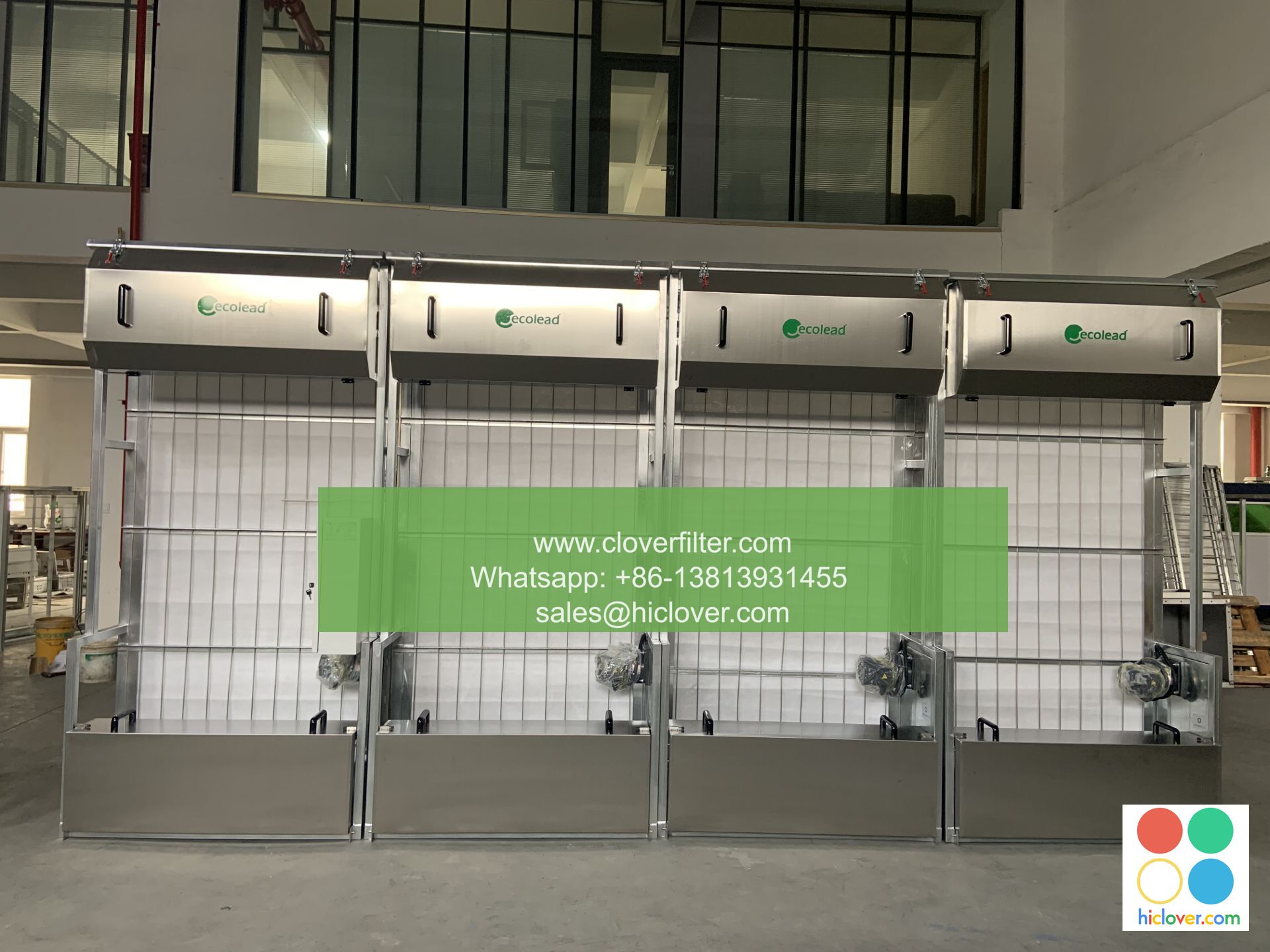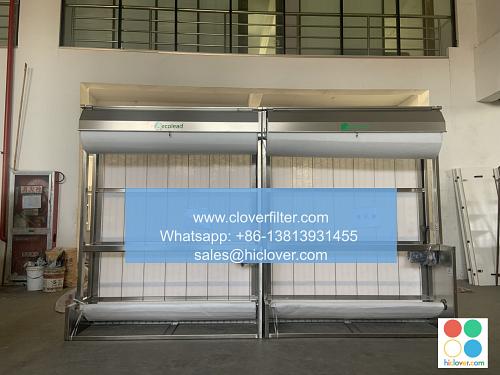The Role of Automatic Roll Air Filters in Maintaining a Sterile Environment in Food Biotech Labs

In food biotech labs, maintaining a sterile environment is crucial to prevent contamination and ensure the quality of food products. One of the key components in achieving this is the use of automatic roll air filters. These filters play a vital role in removing airborne particles, bacteria, and other microorganisms that can compromise the sterility of the lab.
Food biotech labs involve various processes, such as fermentation, cell culture, and genetic engineering, which require a controlled environment to prevent contamination. Airborne particles, including dust, pollen, and microorganisms, can easily enter the lab through ventilation systems, personnel, or equipment. If not removed, these particles can settle on surfaces, contaminate equipment, and compromise the quality of food products.
Automatic roll air filters are designed to capture airborne particles, including particles as small as 0.3 microns, which is smaller than most bacteria and viruses. These filters are made of a porous material that allows air to pass through while trapping particles. The filters are typically installed in the lab’s ventilation system and are designed to be automatically replaced when they become saturated with particles.
The use of automatic roll air filters in food biotech labs offers several benefits. Firstly, they help to maintain a sterile environment by removing airborne particles that can contaminate food products. Secondly, they reduce the risk of cross-contamination between different areas of the lab. Thirdly, they help to prevent the growth of microorganisms, which can compromise the quality of food products. Finally, they reduce the need for manual cleaning and disinfection, which can be time-consuming and labor-intensive.
In addition to their technical benefits, automatic roll air filters also offer several practical advantages. They are easy to install and maintain, and they can be customized to fit the specific needs of the lab. They are also relatively low-cost compared to other air filtration systems, making them a cost-effective solution for food biotech labs.
Furthermore, automatic roll air filters can be integrated with other lab equipment, such as fume hoods and biosafety cabinets, to create a comprehensive air filtration system. This integrated system can provide an additional layer of protection against contamination and help to maintain a sterile environment in the lab.
It’s worth noting that automatic roll air filters are not a substitute for other contamination control measures, such as personal protective equipment (PPE) and good laboratory practices (GLP). Rather, they are an additional tool that can be used in conjunction with these measures to maintain a sterile environment in food biotech labs.
In conclusion, automatic roll air filters play a critical role in maintaining a sterile environment in food biotech labs. They offer several technical and practical benefits, including the removal of airborne particles, reduction of cross-contamination, and prevention of microorganism growth. By integrating automatic roll air filters into their air filtration system, food biotech labs can help to ensure the quality and safety of their food products.
Conclusion
In summary, automatic roll air filters are a vital component in food biotech labs, helping to maintain a sterile environment and prevent contamination. Their use offers several benefits, including the removal of airborne particles, reduction of cross-contamination, and prevention of microorganism growth. By using automatic roll air filters, food biotech labs can help to ensure the quality and safety of their food products and maintain compliance with regulatory requirements.
FAQs
Q: What is the purpose of automatic roll air filters in food biotech labs?
A: The purpose of automatic roll air filters is to remove airborne particles, including bacteria and other microorganisms, that can contaminate food products and compromise the sterility of the lab.
Q: How do automatic roll air filters work?
A: Automatic roll air filters work by capturing airborne particles as they pass through the filter. The filters are made of a porous material that allows air to pass through while trapping particles.
Q: What are the benefits of using automatic roll air filters in food biotech labs?
A: The benefits of using automatic roll air filters include the removal of airborne particles, reduction of cross-contamination, prevention of microorganism growth, and reduction of manual cleaning and disinfection.
Q: Can automatic roll air filters be customized to fit the specific needs of the lab?
A: Yes, automatic roll air filters can be customized to fit the specific needs of the lab, including the type of particles to be removed and the airflow requirements.
Q: Are automatic roll air filters a substitute for other contamination control measures?
A: No, automatic roll air filters are not a substitute for other contamination control measures, such as PPE and GLP. Rather, they are an additional tool that can be used in conjunction with these measures to maintain a sterile environment in the lab.

